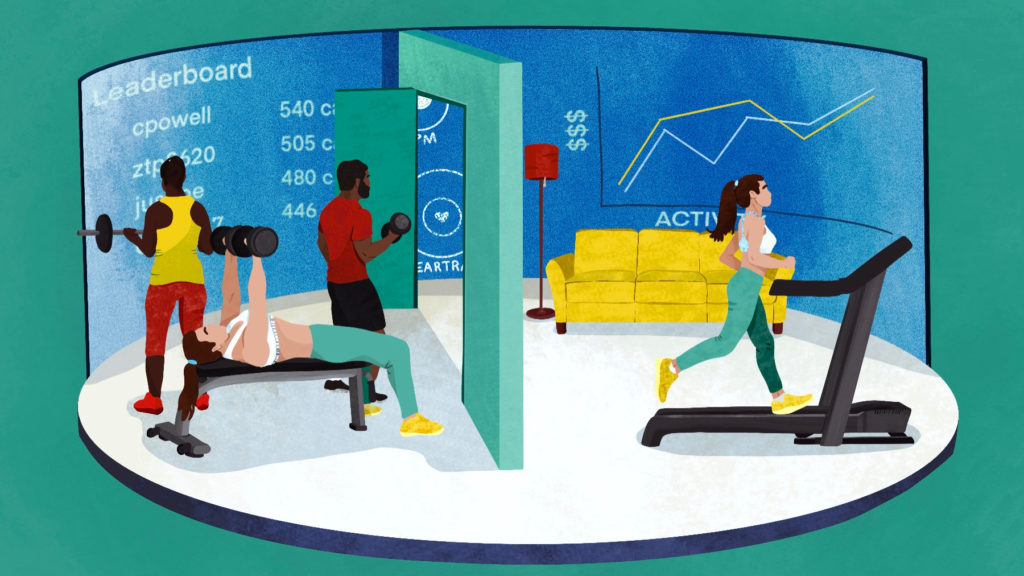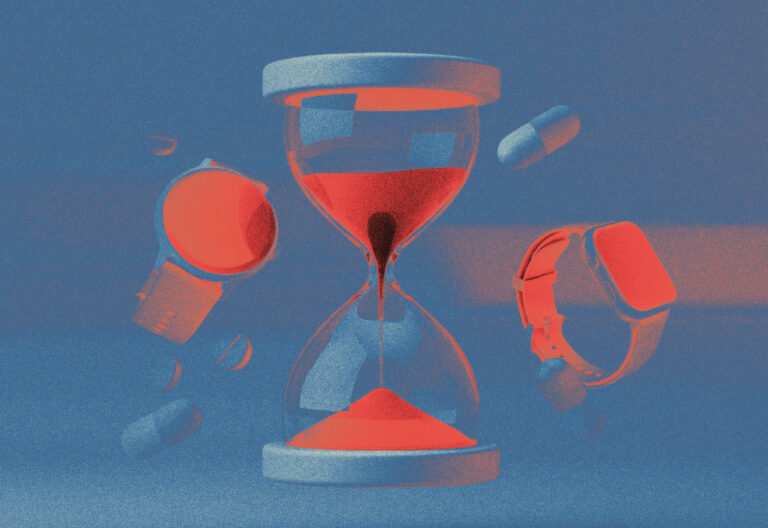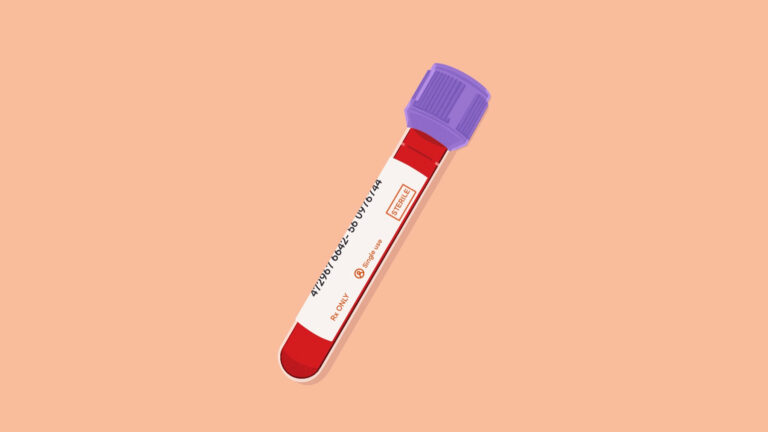Last week, we reflected on industry-defining developments from 2021.
Kicking off a new year, today, we’re exploring what’s next in health and fitness.
Beyond Omnichannel
A shock to some, gyms aren’t dead. But, consumers are more empowered than ever to exercise on their own terms.
Hardly an either-or choice, digital and physical businesses are being forced to adapt. Meanwhile, new waves of disruption are forming.
Pipes and platforms. Combining hardware, software, and content, brands like Peloton, iFIT, and Echelon are building vertically integrated platforms to own the entire fitness journey.
A different approach, in search of distribution and differentiated content, new partnerships are forming.
- Equinox+ offers TB12, [solidcore], and Rumble workouts on its app.
- Barry’s and FORME announced an exclusive content and retail deal.
- Samsung invested in obé, streaming the startup’s workouts on its smart TVs.
- Life Fitness partnered with and invested in digital content developer PEAR Sports.
Punchline: In an effort to attract and retain consumers, the unbundling and bundling have just begun.
Into the metaverse. Scratching the surface of social experiences, fitness brands tout leaderboards and Facebook groups as evidence of engaged communities. Offering immersive workouts and multiplayer competition, the metaverse of fitness could redefine exercise. VR, in particular, is heating up:
- In 2020, 60 Oculus titles generated more than $1M in revenue.
- In 2021, Oculus sold more headsets than Microsoft sold Xbox units.
- By 2028, the global VR gaming market is set to reach $53B, up from $7.9B in 2021.
Signaling more growth ahead, Big Tech is all-in with Meta (Facebook) acquiring Supernatural and Apple set to debut its mixed reality headset.
Move-to-earn. As fitness and gaming intersect with fintech and web3, new business models and incentive structures are forming.
Paying users to work out, Cadoo uses cash wagers to encourage accountability. Offering crypto, Sweatcoin and Clinicoin pay out for steps and other activities. Launching wellness credit cards, Paceline and Ness are merging physical and financial well-being.
Elsewhere, fitness games are rewarding players with crypto tokens — whereas “burn-to-earn” developers like Genopets, Calo Metaverse, and OliveX win when users win.
Expect to see new takes on community, competition, rewards, and monetization as more fitness brands and creators wade into web3.
Truly Personalized
Much of what passes for personalization is actually preference-based recommendations. Using a survey or past experience, brands suggest products we’re more likely to engage with.
But health and fitness is evolving toward true personalization:
- Fitness: Machine learning and computer vision unlocked real-time form guidance. Remote coaches are enabling personalized programming. And wearables, including smart clothes, can seamlessly track progress and pitfalls.
- Nutrition: Testing blood, the microbiome, and other biomarkers, startups are taking the guesswork out of eating well. The challenge? Shifting the focus from dieting to optimal eating for each person.
- Healthcare: As wearables and at-home diagnostics give way to continuous health monitoring, an individualized, data-driven approach to health optimization and healthcare will take hold.
Accountability-as-a-service. Bridging the gap between knowledge and action, companies are scaling one-on-one coaching.
Future provides personal training, Wellory offers nutritionists, and Bioloop connects users to sleep coaching. Tapping telemedicine, weight loss coaching is becoming more accessible. And digital health companies are using cognitive behavioral therapy to improve mental health.
From coaching to concierge, startups like Fount and Maslo hope to automate health optimization. Empowering experts, YourCoach is building the business-in-a-box software for health coaches.
Meaning-Making
Confronting record levels of loneliness, depression, and burnout, mental health companies are scaling up. At the same time, mental wellness is taking new forms, from breathwork and biofeedback to silent retreats and psychedelics.
Mental muscle. Distinct from solutions treating anxiety and depression, the mental fitness movement seeks to enhance, not remedy — here, resilience, adaptiveness, and emotional health are the focus.
Alone together. Connected online but alone in real life, we’re longing to fill a void. In recent months, worship apps Hallow and Glorify secured investments. Tapping into spirituality, last year, astrology apps Co–Star and Sanctuary raised capital.
After two years of isolation, communities and social experiences will be critical to reestablishing a sense of belonging.
Time as wellness. Time is a precious resource, but it’s often squandered. Now, new tools like Opal and The Light Phone are emerging to help us reclaim focus. Increasingly, putting a premium on time will become a pillar of health, where disconnecting, spending time in nature, or taking a sabbatical is a priority.
Aging Well
The race to improve or eliminate the aging process is on. A nascent category set to accelerate, longevity science is moving into the mainstream.
Disrupting death. Breaking out into two groups, healthspanners are working to extend the healthy lifespan, while immortalists want to live forever. The common ground, both camps believe aging is a medical condition that can be treated.
Hoping to solve costly, age-related health problems, startups and longevity scientists are moving in:
- Google-backed Calico Labs renewed its $1B partnership with AbbVie to continue R&D efforts into the underlying biology of aging.
- Altos Labs, a new anti-aging research company, launched with backing from the world’s wealthiest, including Jeff Bezos and Yuri Milner.
- Coinbase CEO Brian Armstrong raised $150M to start NewLimit, a company seeking to extend human healthspan.
Live it up. Until there’s a cure for death, aging isn’t an option. But, we do have a say in how we choose to grow old. While longevity science pushes the limits of what’s possible, brands that help older adults live longer, healthier, happier lives can play a role in redefining aging.
The Year Ahead
Whatever 2022 brings, we’re so excited to watch the future unfold. If you want to share your thoughts on the industry or just connect, hit reply — it goes straight to my inbox. Likewise, if you’re building a company in the space, send me a note — we want to be first in line to help crazy-ambitious health and fitness founders.
🚀 Build and Scale
A brand development and investment company, M13 has created a full-service venture engine to build high-velocity businesses.
On the Fitt Insider Podcast: M13’s Courtney Reum joined us to discuss the shifting venture capital ecosystem, trends in health and wellness, and the firm’s investments in companies like Tonal, Headspace, and ClassPass.
We also cover: Courtney’s frameworks for evaluating potential investments.
Listen to today’s episode here.
⚙️ Getting in Gear
Eyeing the growing opportunity in connected equipment, Zwift is moving closer toward unveiling its own hardware, releasing a sneak peek of a smart bike and indoor cycling trainer.
For context. A fitness company born out of gaming, Zwift enables virtual training and multiplayer competition for cycling or running.
To date, Zwift has primarily focused on software development, creating a video game-like experience. But, the company has been working to expand into equipment:
- March 2020: Zwift laid off senior employees, restructuring to develop new hardware.
- September 2020: The company was valued at more than $1B in a $450M funding round, with the stated goal of bringing Zwift-designed hardware to market.
- May 2021: Appearing on the Fitt Insider Podcast, Zwift CEO Eric Min reaffirmed the company’s ambition to develop connected equipment but didn’t share a timeline.
Ready to ride. Making its foray into connected fitness, Zwift recently teased a smart bike and indoor cycling trainer in a customer survey, according to DC Rainmaker.
- Zwift Wheel. Compatible with any bicycle, the smart trainer replaces the bike’s back wheel, syncing with the virtual racecourse and measuring output.
- Zwift Ride. Combining a bike frame with the Wheel device, Ride is a turnkey cycling experience, eliminating the need for manual setup.
While the survey speaks to would-be products, the hypothetical prices are telling. Ride is set at ~$2,300, and the Wheel was listed for ~$1,200. Looking at the endurance tech category, these prices are competitive with the likes of Wahoo Fitness, Wattbike, Tacx, and others targeting this growing market.
Coming summer 2022. Citing people familiar with Zwift’s hardware efforts, DC Rainmaker said the company hopes to officially launch its smart hardware in July of 2022.
🚨 The Kids Aren’t Alright
Social isolation brought on by the pandemic is wreaking havoc on kids’ mental and behavioral health.
- Emergency visits related to suspected teen suicide attempts spiked over 30% during the pandemic, rising to an alarming 50% for girls aged 12 to 17.
- Over the past year, psychologists have seen a 30% jump in demand for services for children under 13.
- 71% of parents are worried about the pandemic’s effects on their children’s development, with emotional development cited as the top concern.
And long-term consequences have yet to manifest. All told, the economic impact of COVID-19 on kids’ mental health could exceed $390B a year. However, there’s a severe shortage of services — over 70% of US counties don’t have a practicing child psychiatrist.
The kids’ table. Pediatric teletherapy, children’s counterpart to the digital mental health wave, has seen massive growth during the pandemic.
- Elemy (formerly Sprout Therapy) recently reached unicorn status after a $219M investment.
- Brightline secured $72M last summer, helping it expand nationwide access to its behavioral health software.
- Little Otter launched last May with $4.2M in funding, while DotCom Therapy raised $13M in September.
Meanwhile, Daybreak Health has doubled student numbers since the start of the school year, and Hazel Health saw a 400% boost in business last year.
Video game therapy. An estimated 129M kids worldwide have ADHD. Taking a non-drug approach, Akili Interactive Labs received FDA authorization last year to market its prescription video game, EndeavorRx. The company raised $160M with backing from Roblox founder Dave Baszucki.
Mindfulness and sleep. Headspace Health and Calm have both launched initiatives to address the growing crisis. There’s also Moshi, a mindfulness app for children originally launched by Calm co-founder Michael Acton Smith.
Takeaway: We’re only beginning to see the behavioral, mental, and physical toll COVID-19 is having on kids. Erratic school closures and the absence of in-school services have worsened shortages in care. Filling the treatment gap, a wide array of startups are using tech to help, but improving equal access goes far beyond app development.
📰 News & Notes
- sweetgreen rolls out the sweetpass salad subscription.
- Daily Harvest introduces plant-based, ready-to-bake meals.
- Conor McGregor’s FAST training brand enters connected boxing.
- New year, new job? Explore hundreds of health and fitness openings.
- F45 Training teams with Concert Golf Partners to open studios at country clubs.
- Startup Q&A: Wild.AI CEO Hélène Guillaume Pabis on unlocking female performance.
- Expanding into physical activity, Calm debuts Daily Move to promote mindful movement.
💰 Money Moves
- United Fitness Brands acquired boutique studio operator triyoga, adding the yoga and Pilates business to a portfolio that includes Boom Cycle, KOBOX, and Barrecore.
- Subscription meal kit company Marley Spoon acquired Melbourne-based ready-to-heat meal provider Chefgood for AUD 21M ($15.M).
More from Fitt Insider: What’s Next for Meal Kits? - Formel Skin, a German telehealth platform for dermatology, raised €30M ($33.9M) in a Series A round.
- Pickleball equipment and software company Pickleball Central received an undisclosed strategic investment from Dundon Capital Partners.
More from Fitt Insider: Recreation’s Renaissance - Flourish, a health and wellness app for women, raised $1M in pre-seed funding led by True Wealth Ventures.
- Canned water brand Liquid Death secured $75M in a Series C round led by Science.
- ianacare, a digital platform for caregivers, landed $12.1M in a Series A round led by Greycroft, with participation from 8VC, Able Partners, and others.
More from Fitt Insider: Caring for an Aging Nation
Today’s newsletter was brought to you by Anthony and Joe Vennare, Melody Song, Wesley Yen, and Ryan Deer.






